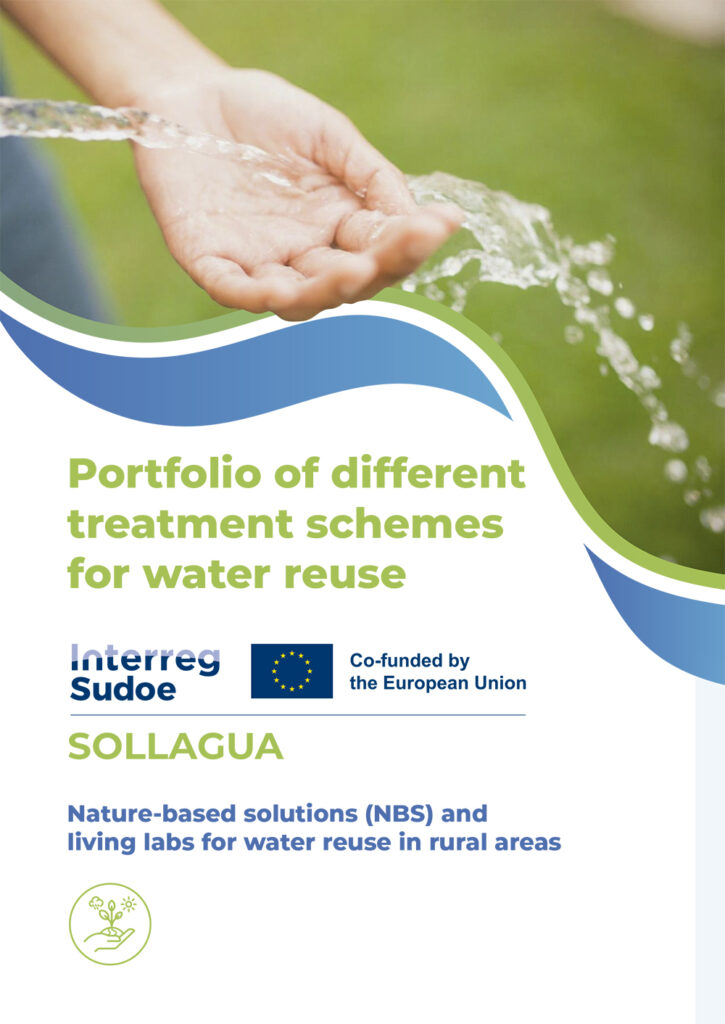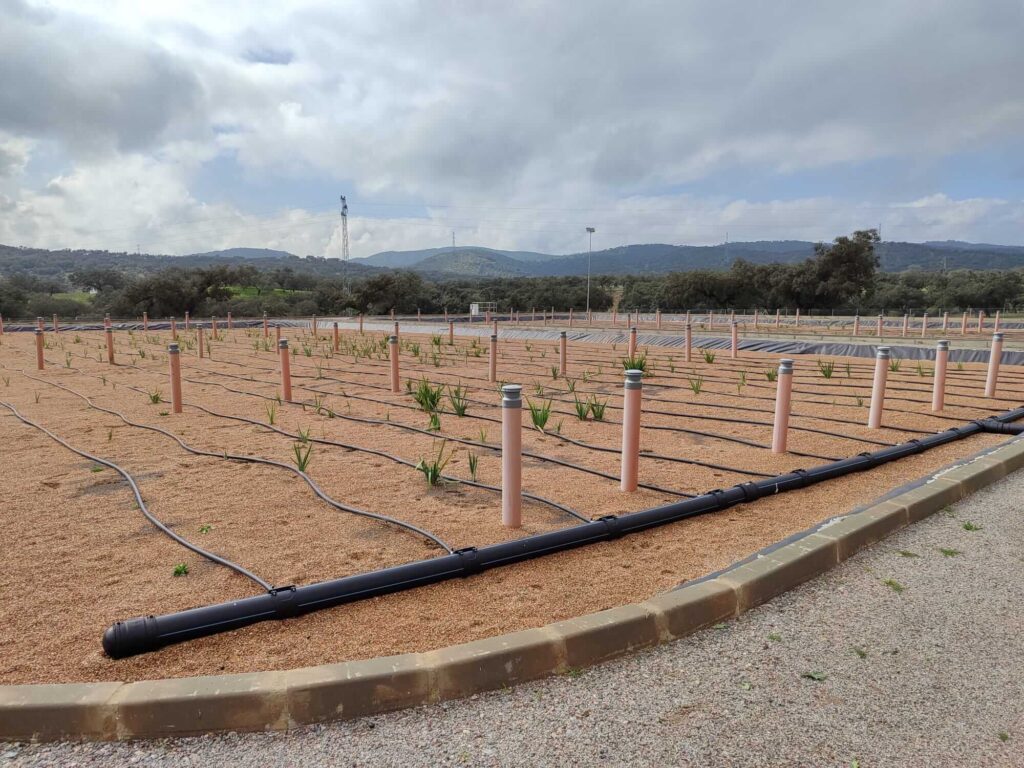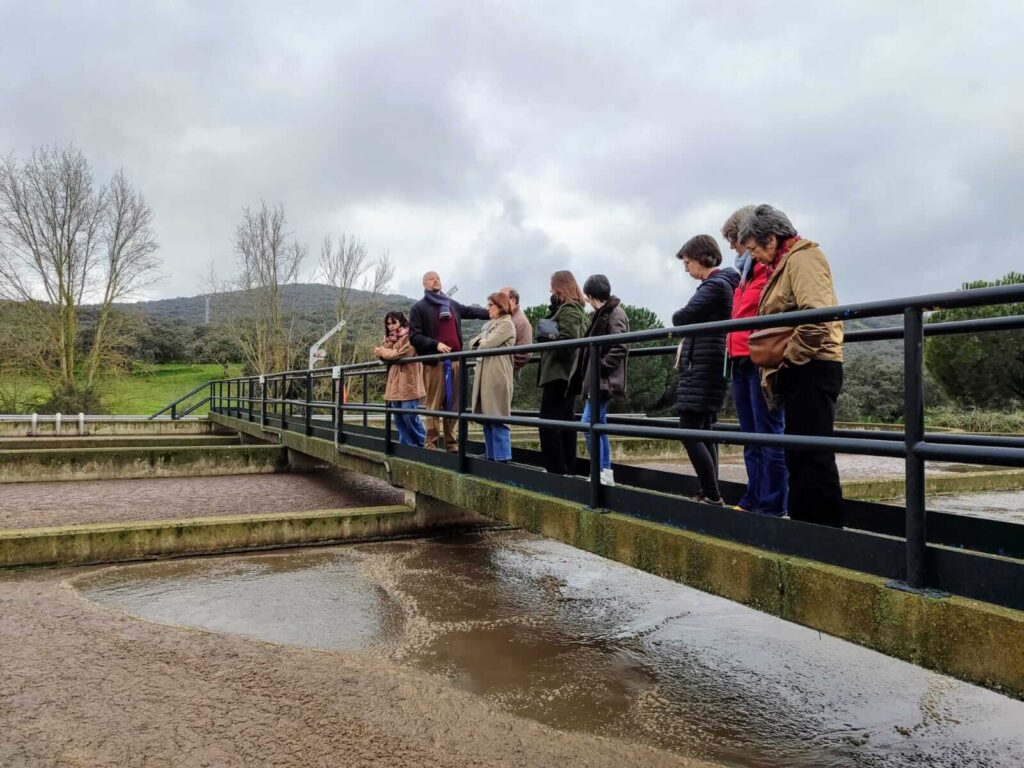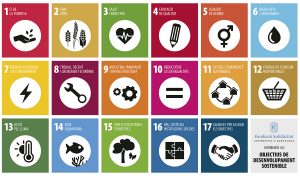The study has been systematized by Dr. Antonina Torrens, coordinator of the Nature-based solutions for sustainable development program of the Solidarity Foundation of the University of Barcelona.
The field of wastewater is maturing rapidly, driven by growing demands for sustainable water management solutions in response to increasing water scarcity and stringent environmental regulations. However, several research gaps and technical challenges remain that need to be addressed to optimise the performance, reliability, and applicability of wastewater treatment technologies.
Dr. Antonina Torrens, coordinator of the Nature-based solutions (NBS) for sustainable development program of the Solidarity Foundation of the University of Barcelona, has systematized the scientific publication Portfolio of different treatment schemes for water reuse, produced within the framework of the European SOLLAGUA project, an initiative funded by the Interreg SUDOE programme.
The report serves as a state-of-the-art review of current technologies for wastewater reclamation. It gathers the most frequent green and grey technologies integrated in the reuse of treated wastewater (REUT) chains, that could be full green or grey or hybrid.
Specifically, the portfolio includes detailed factsheets of 17 different technologies, which are intended to aid in the decision-making process, offering concise yet informative guidance on the most relevant and innovative wastewater treatment solutions.
The comparative study uses a large collection of references, in-depth research, and information gathered from meetings and interviews with reuse and NBS experts, as well as information from SOLLAGUA partners who run existing reuse platforms.
Moreover, the legislative and quality standards for wastewater reuse, encompassing national and EU regulations, constitute a significant section of the study. Particularly in agriculture, this knowledge is essential to grasp how rules affect the choice of equipment and the evolution of reuse schemes.
For SOLLAGUA’s coordinator, Dr. Magali Gerino, professor of Ecology at the University of Toulouse, “water recycling is an emerging field that will continue to gather new collaborations and opportunities. An update of the knowledge on this topic is not only useful for the project consortium but also lets hope it will help outside.”
Dr. Antonina Torrens agrees that “this report can inspire other projects to adopt innovative nature-based solutions (NBS) for wastewater reuse, advancing sustainability and efficiency in water management, especially in rural areas.”
The UB Solidarity Foundation and water management
The Solidarity Foundation of the University of Barcelona has extensive experience in WASH (Water, Sanitation and Hygiene) projects, which promote nature-based solutions for the sustainable management of water resources.
Currently, in addition to the SOLLAGUA project, the Foundation participates in the LIFE4Zoo project, funded by the LIFE program of the European Union, which promotes NBS so that the zoos of Barcelona and Liberec optimize the use of water.
On the other hand, in Senegal, together with the Gaston Berger University (UGB) of Saint-Louis and Món-3, the UB Solidarity Foundation is working on the implementation of low-cost, sustainable and environmentally friendly technologies for the sustainable management of wastewater and sanitation services in the Saint-Louis region; including the installation of an ecological wastewater treatment plant on the UGB campus.
Likewise, in Palestine, together with the Catalan Association for Peace (ACP), the UB Solidarity Foundation contributes to the training of women’s farmer cooperatives in areas such as water management. Meanwhile, in Southeast Asia, it has developed training programs on water resources in six universities and contributed to integrating nature-based water treatment technologies in six cities. In fact, more than 10 years ago, with the National University of Vietnam, the UB Solidarity Foundation created an industrial wastewater treatment plant with ecological systems in Hạ Long Bay, which was the first infrastructure of its kind (Constructed Wetlands) in Southeast Asia.













